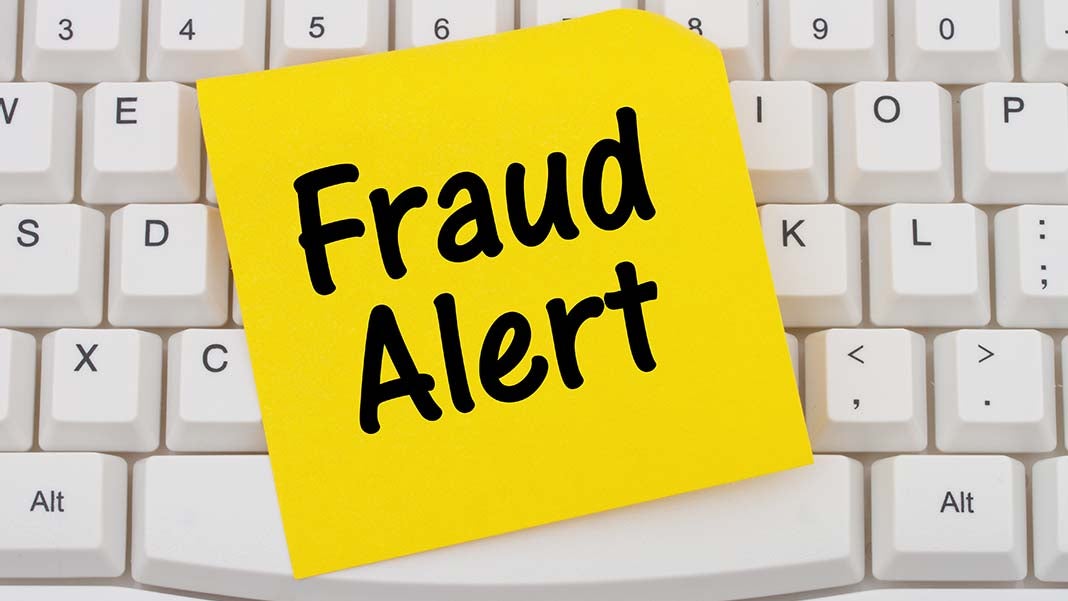Everything You Need to Know About Fraud Liability
By: SmallBizClub

It’s no wonder small businesses are feeling pressured or even overwhelmed by security concerns today. From federally mandated EMV chip updates to POS systems to worries about online fraud, questions over security measures and potential liability abound.
Tackling these issues head on means balancing convenience, liability protection and implementation costs. It also means gaining a solid understanding of the evolving questions around who is liable when fraud occurs. That’s where you need to start.
Liability in Your Brick and Mortar Stores: What Should You Be Concerned About?
From the retail to the service sector, small businesses are frequently confronted with complex questions about how to handle liability. That liability can come in the form of consumer protection, the risk of employee fraud or from possible claims against your mandated surety bonds.
Besides the fundamentals around claims by customers on your bonds, the question of your liability in the case of outside criminal behavior is a much larger one. Luckily, EMV chips in credit and debit cards are going a long way towards solving this problem for POS systems. They’re far more secure than their predecessors.
However, there’s a flip side. If your business hasn’t made the switch yet, you are now fully liable for any fraud committed at your business when using a magnetic stripe POS system on an EMV-equipped card. Where the card issuer was previously on the hook for any fraud, as of October 2015, that responsibility is placed fully on the merchant’s shoulders. This means you need to eliminate the old swipe readers on your POS systems as soon as possible.
True, there are costs involved, but federal mandates and the financial risks of not taking action are far too great to ignore. The risk of card fraud isn’t the only thing you need to worry about, though: too many businesses focus on outside threats while leaving themselves exposed to fraudulent or improper actions by their own employees.
Should You Be Covering Yourself Against Employee Fraud Too?
Probably. The specificities of an employment contract can have huge implications in how a case of employee fraud will play out in court. Aside from making this clear in your contracts from the beginning, using a fidelity bond to boost your security makes sense.
For most small businesses, the costs of acquiring a fidelity bond (i.e.: an employee dishonesty bond) aren’t particularly high. These bonds are obtained easily from a surety bond agent, but unlike surety bonds, which protect the public, fidelity bonds are designed to protect your business against any kind of fraud by your own employees. Here’s more information on how to protect your business with an employee dishonesty bond.
The Confusing and Evolving Question of Online Fraud Liability
Even more worrisome for small businesses is the question of online fraud liability. Much like with credit and debit cards in the past, it’s usually assumed that the bank holds the responsibility to cover any losses due to fraud. However, this may be changing.
A series of recent cases have seen state courts rule both ways on this issue. In the first, a business in Maine was defrauded to the tune of $588,000. After the business’ bank refused to reimburse more than the $243,000 that it recovered, the business sued. A U.S. District Court recommended the case be dismissed, showing a lack of interest in even hearing the case.
On the other hand, a separate but similar case in Michigan saw another U.S. District Court rule that the bank in question bore the full liability for reimbursing the business that had been the victim of fraud. These competing cases show that until the U.S. Supreme Court rules on this issue, the legal waters are likely to remain muddy.
What does that mean for your small business? You should review the legal terms of your relationship with your bank and clarify their stance on these fraud reimbursement issues. If it seems likely that any case would have to result in litigation, changing banks may be the best solution.
Weighing the Risks and Benefits
As hard as it is to keep on track with the latest legal and technological developments in security and liability, small businesses can’t afford not to. Now more than ever, owners and managers need to keep their eyes open and see these issues on a national and international scale.
Policy changes in Europe or on the other side of the U.S. can have big implications, as the two district court cases mentioned above demonstrate. The good news is that technologies like EVS are tackling fraud head on and should take some pressure off small businesses around the country. Let’s hope that trend continues.
Author: Eric Halsey is a historian by training who’s been interested in U.S. small businesses since working at the House Committee on Small Business in 2006. Coming from a family with a history of working on industry policy, he has a particular interest in the surety bonding and alternative finance industries. He shares his knowledge for JW Surety Bonds.
3540 Views












